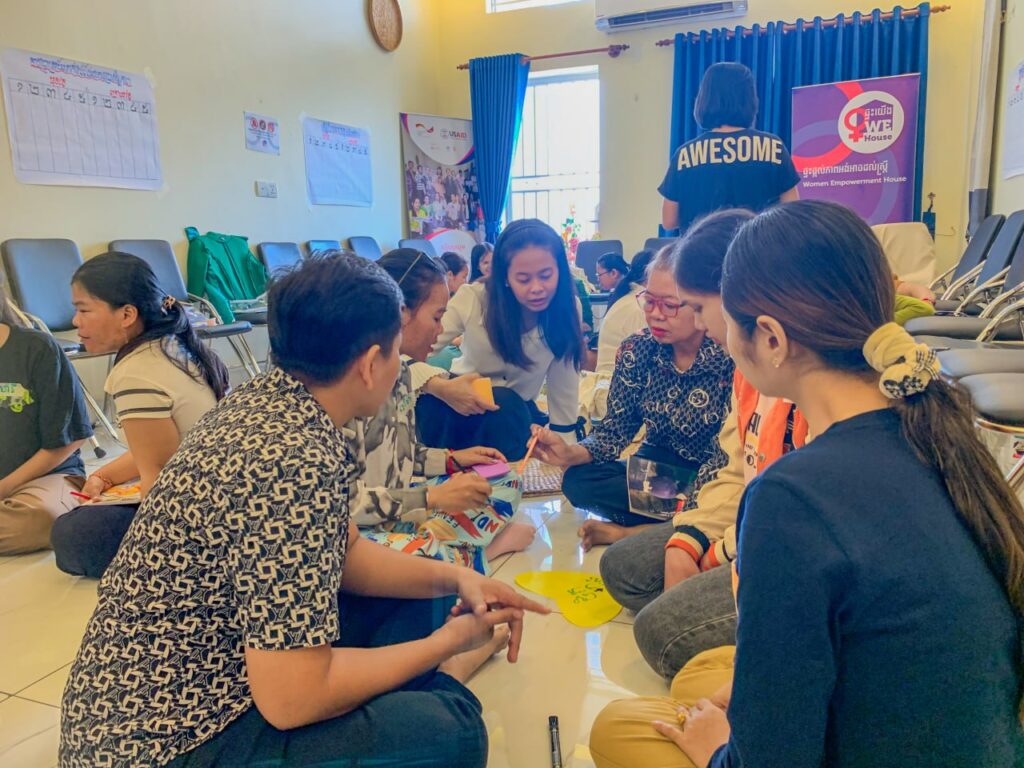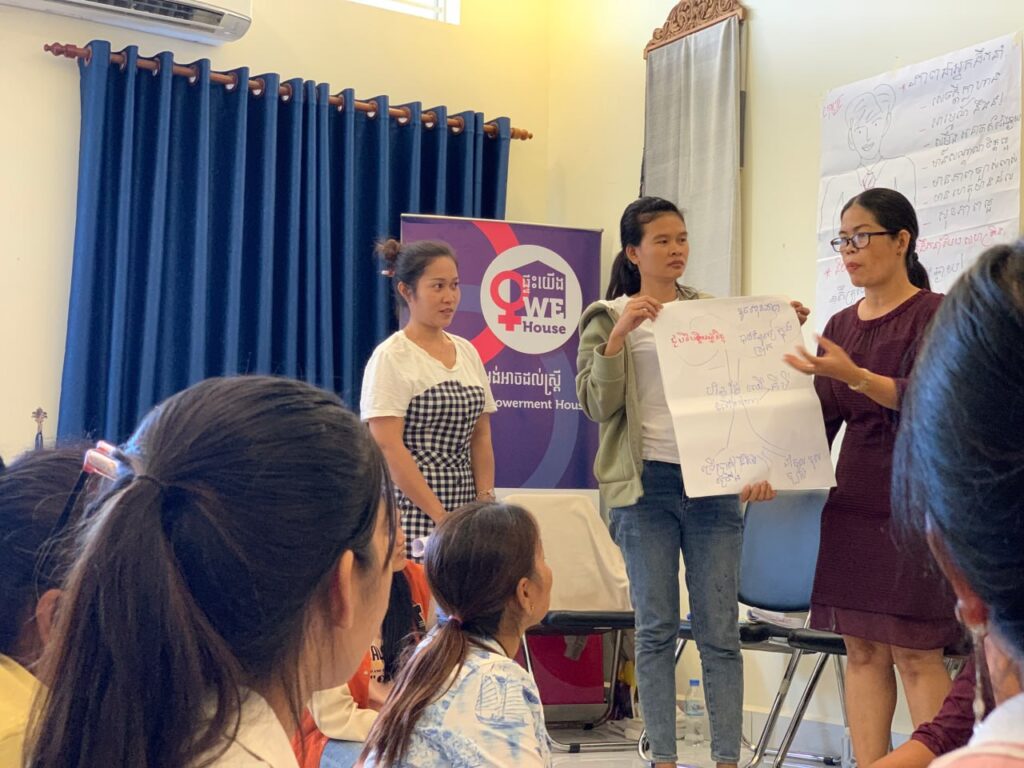Training and Mentoring
Wellbeing-Entrepreneurial Leadership Training and Mentoring Program



we design and provide comprehensive training courses plus mentoring and coaching to equip trainees with knowledge and skill as a transformative leader with entrepreneurial thinking and knowledge to initiate alternative solutions for addressing issues, while being able to manage their personal wellbeing effectively. The training contents and approaches are adjustable based on the need assessment of each target group.
WELL target:
- Youth: Cambodia has a significant youth population, and supporting them is essential for the country’s sustainable development. Investing in youth education, skills training, and employment opportunities can help harness their potential, drive innovation, and build a skilled workforce for the future. Empowering youth also contributes to social stability and reduces the risk of social exclusion and unrest.
- Women: Women make up roughly half of Cambodia’s population and play a vital role in the country’s economy and society. Empowering women through education, economic opportunities, and gender equality initiatives not only promotes social justice but also enhances overall economic development. Women’s active participation in the workforce and decision-making processes can lead to more inclusive and equitable development outcomes.
- SMEs: Small and medium-sized enterprises are the backbone of Cambodia’s economy, accounting for a significant portion of employment and GDP. Supporting SMEs through access to finance, business development services, and market opportunities can foster entrepreneurship, job creation, and economic diversification. Strengthening the SME sector contributes to poverty reduction, reduces income inequality, and enhances economic resilience.
- Informal business: Informal businesses play a substantial role in Cambodia’s economy, particularly in urban areas. Many individuals rely on informal work for their livelihoods, and these businesses contribute to employment and income generation. Supporting informal businesses through capacity building, access to finance, and regulatory frameworks can help formalize their operations, improve productivity, and enhance their contribution to the economy.
- Local authority : Local authorities are responsible for the provision of essential services, infrastructure development, and governance at the grassroots level. Strengthening local authorities’ capacity enhances their ability to address the needs of communities, promote participatory decision-making, and ensure effective service delivery. Supporting local authorities also contributes to decentralization efforts, fostering regional development and reducing regional disparities.
Wellbeing Advancement Organization (WELL) was legally registered on September 8th, 2020, as a non-profit organization. WELL is on a mission to build and support wellbeing entrepreneurial leadership.

